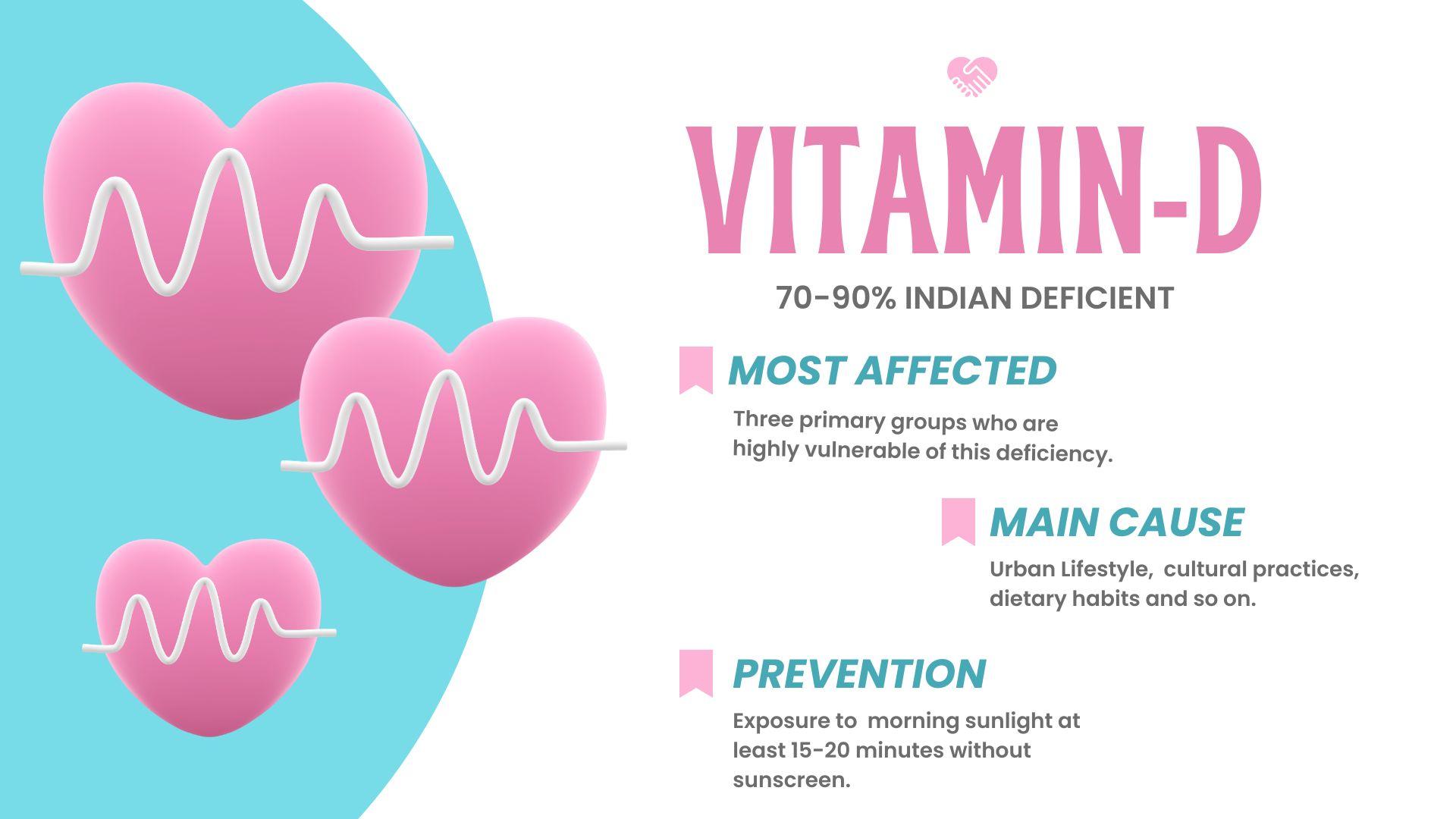Why Is Vitamin-D Deficiency Rampant in India?

Silent Crisis: Vitamin-D Deficiency
When was the last time you felt the sun warm your face? In a country blessed with abundant sunshine, it’s ironic that Vitamin-D deficiency has become a silent epidemic in India. Studies reveal that over 70-90% of Indians are deficient in this vital nutrient, often without realizing it. It’s not just about weak bones; this deficiency silently impacts your immunity, mood, and overall quality of life.
Despite being a tropical country, where sunshine is almost guaranteed, Vitamin-D deficiency is shockingly widespread. Why? Let’s dive deeper:
- Urban Lifestyles: Our modern lives revolve around indoor spaces – offices, homes, and malls. Add air-conditioned environments and the lack of direct sunlight, and you have the perfect recipe for Vitamin-D deficiency.
- Cultural Practices: While modest clothing and the use of sunscreens protect against harmful UV rays, they also limit the amount of sunlight absorbed by the skin.
- Pollution Levels: Dense air pollution in cities acts as a barrier, blocking UVB rays that help the body synthesize Vitamin D naturally.
- Dietary Habits: Indian diets, while diverse and rich, often lack foods naturally high in Vitamin D. Unlike the West, we consume fewer Vitamin D-fortified foods like milk, cereals, and orange juice.
- Skin Melanin Content: The natural melanin in Indian skin makes it harder to absorb sunlight efficiently, putting us at a higher risk.
Who Is Most Affected by Vitamin-D Deficiency?
Research points to three primary groups that are highly vulnerable to this deficiency:
- Women (especially housewives): Due to limited outdoor exposure, Indian women—particularly homemakers—are among the most affected. Hormonal changes in pregnancy and menopause exacerbate the issue.
- Children and Adolescents: The pressure of school schedules and online classes keeps kids indoors. Add junk food, which lacks essential nutrients, and the problem worsens.
- Elderly Population: Seniors tend to avoid sunlight due to reduced mobility or health conditions, making them prone to weaker bones, frequent fractures, and compromised immunity.
The Emotional Toll: It's More Than Just Physical
Vitamin D deficiency isn't only about physical health—it creeps into your emotional well-being too. Studies link low Vitamin D levels to fatigue, depression, and even anxiety. Imagine waking up every day feeling exhausted, unable to pinpoint why. Now imagine thousands of people going through the same, silently suffering because they’re unaware of a simple solution.
Here’s how you can prevent and combat Vitamin-D deficiency:
1. Bask in the Morning Sunlight: Just 15-20 minutes of exposure (without sunscreen) during early morning hours can do wonders. Focus on exposing larger areas of skin like arms and legs.
2. Vitamins-rich Foods: Incorporate fatty fish (salmon, tuna), egg yolks, mushrooms, and fortified foods into your diet.
3. Supplements: Sometimes, diet and sunlight aren’t enough. A doctor-prescribed Vitamin D supplement can fill the gap.
4. Regular Health Check-ups: Get your Vitamin D levels tested, especially if you’re experiencing fatigue, bone pain, or mood swings.
5. Encourage Outdoor Activities: Whether it’s kids playing in the park or adults taking morning walks, spending time outdoors can make a difference.
Thankfully, this silent epidemic has a simple fix:-
sunshine and small lifestyle tweaks.









